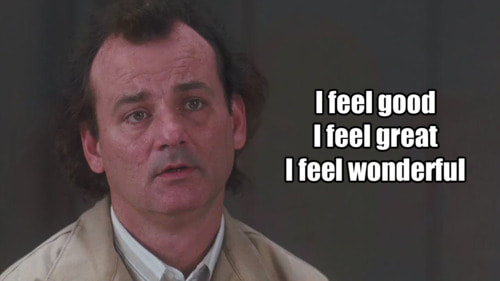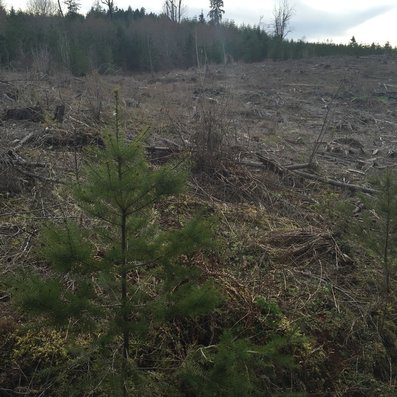 People have an affinity for saying stupid things. When using good as an adjective to describe another human it is important to listen to the qualifier in order to grasp the context of what they are communicating. Listen to what people say to and about others in public, while they may use good in a sentence it is important to understand that there are at least three levels of good. 1. He's a good guy. Let's be clear, this might as well be a diss. People say, "He's a good guy," when they have nothing of substance to say. You can fill in the the preamble, "He sucks at everything else but at least he's a good guy." This level of good is bad. It's bad in a bad way. And by bad we mean it's a negative thing. Please, unless you hate me, don't ever use this statement about me. A good guy is the status quo, they meander through life and don't leave a substantive mark one way or the other. If someone describes you as a good guy, you know they hate you. Find some good dudes and get your crap together. If someone introduces you to a good guy, they are telling you to go meet someone else. 2. He's a good dude. Now we are talking. This is what you say when you have genuine affection for someone and value some aspect of what they bring to humanity. A good dude has their faults but they contribute to society and they are working through what they understand to be their negative attributes. Good dudes are humans. Good dudes make mistakes but they also make life better. If you hear someone say, "He's a good dude," they you are being introduced to someone who is worth knowing. Good dudes are a mess like the rest but they have a genuine interest in trying to be better, they lead by example. 3. He's good people. This is a level of noteworthiness. The is a phrase of praise for another human. When you declare to another human, "He's good people," you are saying that if you get to know this person you are getting to know someone who makes the world a better place. Good people are those who rise above the status quo, they often go out of their way to do the right thing, to help others and have likely done something in your lifetime that made you want to be a better person. Good people are not saints, but they inspire greatness. Good people are those handful of friends that would drop what they are doing to help you in a time of need. Life is full of good guys, good dudes and good people. Knowing who you are and who you are around is important. Being and surrounding yourself with the right people are the types of decisions that can lead your life down a path of success or failure. If bad company corrupts good character, the wrong kind of good can be just as dangerous. Check out our IZ Ventures video on making good hires with Lola
0 Comments
 Finding the right talent to add to your team Finding the right talent to add to your team We have had several discussions in our teams about how we continue to attract, develop and keep good talent so that our organization can thrive. People are the ingredient X that will either propel your team or sink the ship. When you have been able to identify motivated individuals who bring new perspectives into your company the first thing you should ask as a leadership team is how to we find more of these caliber of people? In our setting, our work experience is primarily in the construction / property restoration industry which involves manual labor, skilled services and the ability to adapt to new situations with care. Like most sectors, the common practice is to attempt to find employees who have existing skills and incorporate them into the organization. We have often found that hiring those who have been trained by others can be as much of a project, if not more, than training someone from the ground up. In many ways it is easier as well as more beneficial in the long run to train someone who has little specific work experience but who will be a blank slate for your culture and develop their good habits over time than it is to try to break an individual of their bad habits. The time spent in training can yield great and lasting results in employees who are eager to make a difference with the disciplines and values that matter to your organization. It is easier to prevent bad habits than to break them. - Benjamin Franklin If you aren't familiar with property restoration which includes water and fire related damages to structures, our industry is a dynamic blend of manual labor that is service based which requires technical knowledge, industrial skills and people intelligence. Our technicians have to learn have to deal with messy situations with a smile while relaying data in several forms about the work they perform. When we sat down to attempt to analyze where our best performers were coming from we had trouble nailing down specific traits as so many have come from diverse backgrounds. We have hired people with no prior experience who have transitioned from fast food service, baking, auto service, cleaning, agriculture and milling, each has some transitional skills but not directly related to the work we do. As noted, the blank slates of those with no direct experience but also none of the industry related bad habits or short cuts have been some of the best additions to our team. Fresh perspectives and inquisitive minds are valuable. People who ask, "Why do you do it that way," are in the right frame of mind, the question is will they receive the information when you have a sound reason as well as be willing to be a responsible party to change if something needs to be fixed? For our team one thing that seems to be a common trait is a bit of a chip on the shoulder, the idea that individuals have great potential and are just looking for the right opportunity that others may not have given them. To be clear, we are not looking for individuals who are angry at the world, the chip we are looking for is those who have that innate sense that they want to make a difference, they express this in different ways but it is noticeable if you are looking for it. Good people do not need laws to tell them to act responsibly, while bad people will find a way around the laws. - Plato We feel that we can teach anyone the skills of our trade, but there are three things that we tell every potential hire that walks through the door that we need from them. There are three traits that we cannot train or provide an individual, we need you to be honest, hard working and willing to learn. Those things sound simple enough, but if a potential hire is missing any one of those elements they will not be a long term contributor to the culture that we have built nor will they be a value to our clients. These are also three traits that a person either brings to the table or they don't, they cannot be given to someone. We will elaborate on these three foundational character traits in upcoming articles. Where have you found some of your best hires? What do you look for when interviewing a potential addition to your team? Connect. Collaborate. Conquer. |
AuthorThoughts on personal and professional development. Jon Isaacson, The Intentional Restorer, is a contractor, author, and host of The DYOJO Podcast. The goal of The DYOJO is to help growth-minded restoration professionals shorten their DANG learning curve for personal and professional development. You can watch The DYOJO Podcast on YouTube on Thursdays or listen on your favorite podcast platform.
Archives
March 2023
Categories
All
<script type="text/javascript" src="//downloads.mailchimp.com/js/signup-forms/popup/unique-methods/embed.js" data-dojo-config="usePlainJson: true, isDebug: false"></script><script type="text/javascript">window.dojoRequire(["mojo/signup-forms/Loader"], function(L) { L.start({"baseUrl":"mc.us5.list-manage.com","uuid":"b9016446bd3c6a9f0bd835d4e","lid":"83282ffb9e","uniqueMethods":true}) })</script>
|
Jon Isaacson |
Connect. Collaborate. Conquer.
© COPYRIGHT 2015. ALL RIGHTS RESERVED.
|



 RSS Feed
RSS Feed